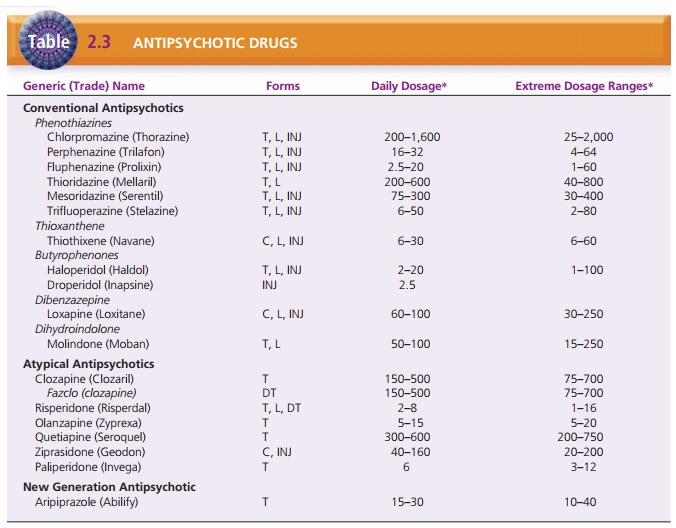Chapter: Psychiatric Mental Health Nursing : Neurobiologic Theories and Psychopharmacology
Antipsychotic Drugs - Psychopharmacology
Antipsychotic Drugs
Antipsychotic drugs, also known as neuroleptics, are used to treat the symptoms of psychosis, such as the delusions and
hallucinations seen in schizophrenia, schizoaffective disorder, and the manic
phase of bipolar disorder. Off-label uses of antipsychotics include treatment
of anxiety and insomnia; aggressive behavior; and delusions, hallucina-tions,
and other disruptive behaviors that sometimes accompany Alzheimer’s disease.
Antipsychotic drugs work by blocking receptors of the neurotransmitter
dopamine. They have been in clinical use since the 1950s. They are the primary medical
treatment for schizophrenia and also are used in psychotic episodes of acute
mania, psychotic depression, and drug-induced psychosis. Clients with dementia
who have psychotic symptoms sometimes respond to low dosages of conventional
antipsychotics. Atypical antipsychotics can increase mortality rates in elderly
clients with dementia-related psychosis. Short-term therapy with antipsychotics
may be useful for tran-sient psychotic symptoms such as those seen in some
clients with borderline personality disorder.
Table 2.3 lists available dosage forms, usual daily oral dos-ages,
and extreme dosage ranges for conventional and atypi-cal antipsychotic drugs.
The low end of the extreme range typically is used with older adults or
children with psychoses, aggression, or extreme behavior management problems.

Related Topics